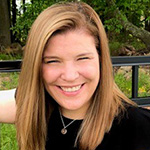SLP Categories: Recognized by Apraxia Kids for Advanced Training and Expertise in Childhood Apraxia of Speech and Apraxia Kids Speech-language Pathologist Directory Member
No Records Found
Sorry, no records were found. Please adjust your search criteria and try again.
Google Map Not Loaded
Sorry, unable to load Google Maps API.
- Jennifer
- Sakowicz
- Yes
- 2139 Silas Deane Highway, Suite 206B
Rocky Hill
Connecticut
06067
United States - Pediatric Communication Center, LLC

Rocky Hill
Connecticut
06067
United States
My treatment approach for children with CAS is not a "one size fits all" approach. Treatment is always based on an individual client's needs and family goals. Evidence-based practice is held paramount and the principles of motor acquisition and learning are always incorporated into therapy sessions. Within all sessions, a client is aware as to why he/she is in therapy and what he/she is working on in sessions and at home. I like for a client to have a level of motivation and ownership in the therapy process so individual therapeutic activities are tailored to the client and are fun.
Parents play an integral role in the therapeutic process as, I believe, parents are the expert on their child. At the beginning of each session, I ask parents how things have been going with home practice. We discuss successes and areas of concern. At the end of sessions, I consult with the parent to discuss what was worked on, how their child performed in the session and what was helpful (what cueing was beneficial) to elicit accurate sequences/target words/phrases etc. If possible, parents are always welcome to sit in and observe sessions so that cueing methods can be observed and practiced at home. Parent feedback, suggestions for practice and concerns are addressed and considered each time a child is seen for treatment.
I have used both low tech and high tech AAC to help augment oral communication skills in children with CAS. In terms of low tech AAC, I typically use picture schedules, communication boards and use of sign language in the beginning stages of treatment so that clients can begin to communicate as effectively as possible, as soon as possible. I have used speech generating devices via use of the iPad to help school-aged children clarify spoken utterances and/or participate in the curriculum within the educational setting.




